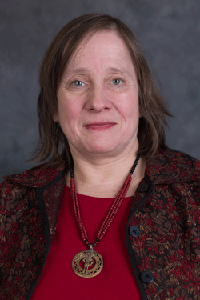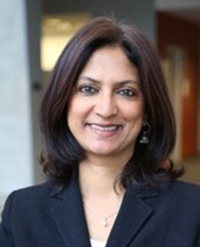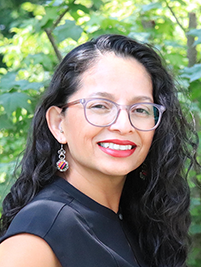
Centering the Margins, the Diversity and Inclusion Office’s monthly series that spotlights the voices and stories of diverse communities that have historically been marginalized, presented the topic, “The Intersectionality of Disability, Race and Pregnancy,” on Wednesday, Nov. 30.
Linda M. Long-Bellil, PhD, JD, assistant professor of family medicine & community health, facilitated a panel featuring Monika Mitra, PhD, the Nancy Laurie Marks Associate Professor of Disability Policy at Brandeis University; and Charity Hueckstedt, a member of the National Center of Disability and Pregnancy Advisory Board.
Dr. Mitra said disparities and inequities in the sexual, reproductive and perinatal health of people with disabilities is largely due to people with disabilities as well as people of color being historically restricted from making their own choices.
“This is a critical foundation to our understanding of the experiences and of the outcomes,” Mitra said.

Parents with disabilities face stigma regarding their decision to have children and many fear their children might be taken away from them, she said.
People with disabilities are still being restricted from making choices about starting families, according to Mitra. Thirty-one states have laws through which people with disabilities can be forcibly sterilized and denied their right to experience sexuality, to have sexual relationships and to find and maintain balance, she said.
According to Mitra, much of these practices are rooted in eugenics—a discredited practice wherein reproduction is arranged to increase the chances of physical outcomes considered desirable. Societal assumptions that people with disabilities are nonsexual beings and that they do not want or cannot have children has created views that they should not become parents, she said.
Mitra, who previously worked at UMass Chan as a senior research associate and assistant professor, and Dr. Long-Bellil created a prenatal framework for the perinatal health for women with physical disabilities. They established that women with disabilities experienced a cumulative burden, so by the time of their pregnancy, they had been exposed to a lifetime of discrimination and inequities, leading to pejorative attitudes toward society and health care professionals.

Giving context to Mitra’s research, Hueckstedt, who has osteogenesis imperfecta, shared her experiences as a mother with a disability having two children.
Children’s protective services told Hueckstedt that she could not leave the hospital until she proved that she was able to care for a baby. “It was like a big ambush,” she said.
Hueckstedt shared that a lack of accessibility to move around and interact with her baby and the lack of trust that providers had in her ability to care for her child made the experience more isolating.
“I think clinicians should be able to talk to the patient and be willing to learn. Listening and understanding the patient’s knowledge on taking care of their baby is important,” added Long-Bellil.